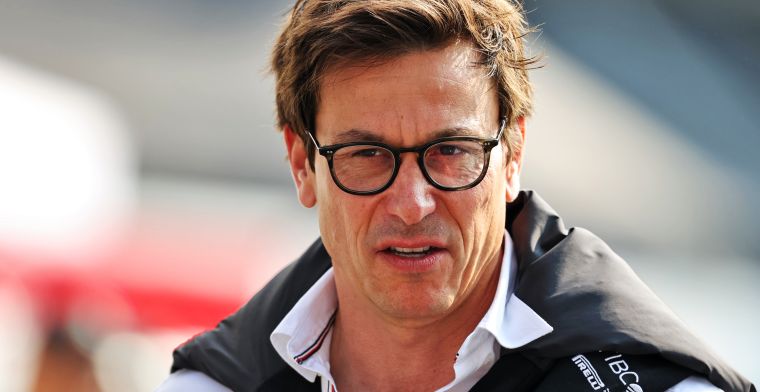F1 News

Wolff complacent: "Overall, it's good to see there is a penalty."
Early today, the punishment for breaching the budget cap was released and both Aston Martin and Red Bull were fined, with the latter also receiving sporting sanctions. Mercedes team boss Toto Wolff was questioned on whether the punishment was fair, to which he responded: "Overall, it's good to see there is a penalty whether we deem it too low or too high."
"I think what is most important for me, is the robust governance. They didn't bulge an eyelid," Wolff told Sky Sports, before adding that "they just followed the process and how it went. Frederico and his team, Shellie Ann and Nicholas were absolutely good in assessing. I know how rigorous they were with us throughout the year. It was a rigorous process."
More to it than just numbers
When diving into the question more, Wolff explained how important it actually was and how it wasn't just "bookkeeping." He stated: "It's a list of things that is more precise. You need to track the time of people. When someone works 80% in F1, you need to really check in and check out like a lawyer. It's a relative game. It's a sport of marginal gains. We all had to cover sick pay, gardening leaves, and the canteen. So, nine teams were okay and one was in breach."
Reputational damage could occur due to breach
The Austrian finished by explaining how much more damage could be caused than just an up-front financial breach and sporting sanctions, "what you see beyond a sporting penalty are financial fines and reputational damage. In a world of transparency and good governance that is just not on anymore. In terms of compliance, the team you are, you are representing a brand and your partners."
Wolff also stated that the majority of the business costs are through marketing were they spend £25 million, which is followed closely by the cost of the drivers. The team was able to stay within the budget cap due to following Alpine's strategy of placing a buffer early on, to minimalise the risk of overspending.



















































